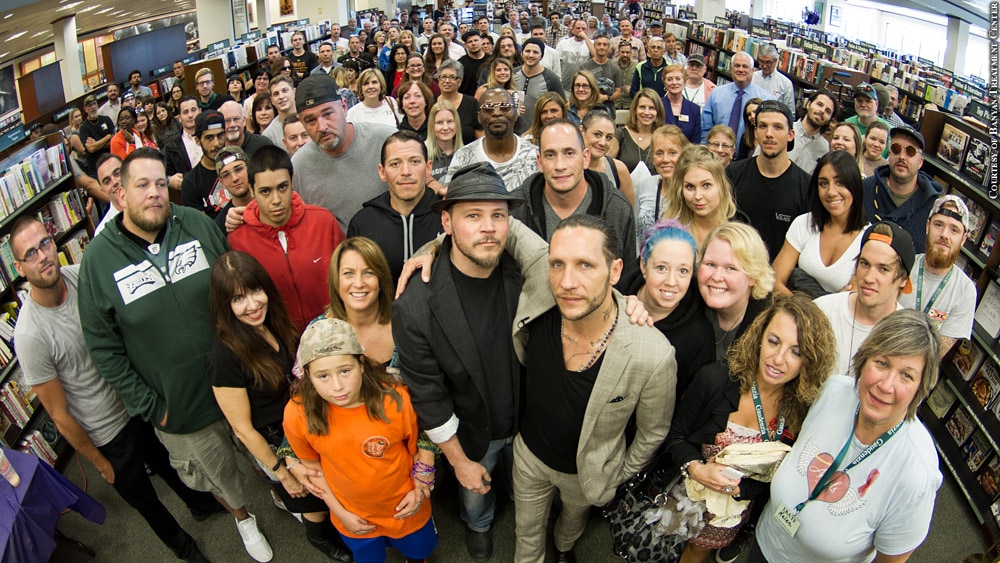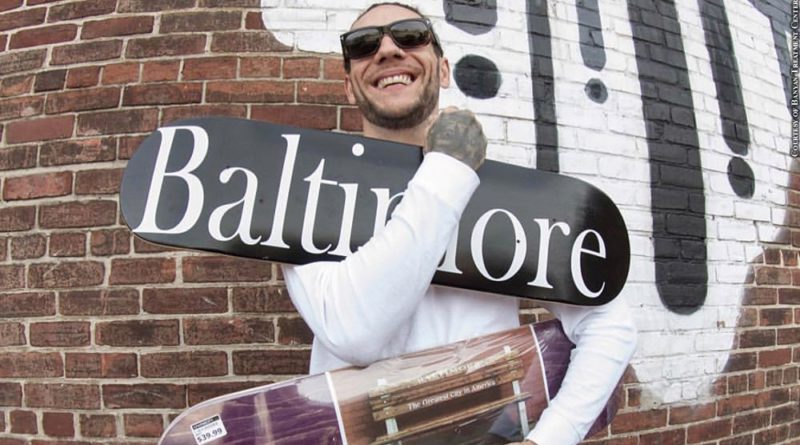Crying in church not far from her home in Baltimore’s Little Italy, Pat Novak was eventually consoled by the priest.
“What’s the matter? Is it Brandon again?” he asked, referring to Novak’s son. Through tears, Pat nodded her head. Yes, it was.
Pat had been expecting the worst for a while now. She had drained numerous savings accounts trying to get Brandon treatment for his addiction to drugs and alcohol. But nothing was helping.
After rising to fame and fortune as a teenage skateboarding prodigy and through regular appearances performing odd and extreme stunts on the popular MTV show “Jackass,” Novak had lost it all during the course of a 24-year battle with addiction. There wasn’t a drug he wouldn’t try or a substance he wouldn’t abuse, he said. One of his fiercest battles was with heroin.
On his 13th visit to an in-patient treatment facility, the Baltimore native’s possessions consisted of eight scarves, two jackets, three socks, a stick of deodorant and four cigarette butts he had fished out of receptacle. All of this fit into a modest bag he used as a pillow. He searched in vain for a pair of clean underwear.
Pat refused to give up hope for her son, but it was becoming a burdensome task. She had already filed a restraining order against Brandon and had even gone as far as buying him a plot in a cemetery off of Eastern Avenue.
She looked up at the priest and said, “I wish God would cure him or kill him, or kill me because I can’t take it anymore.”
A look of concern came over the priest’s face. “Don’t ever say that again,” he told Pat. “God has a plan for him.”
Against all odds and every prediction ever made about him, Brandon Novak has seemingly turned his life around. On May 25, he celebrated the fourth anniversary of his sobriety. He said he barely thinks about drugs and alcohol anymore and even cut himself loose from cigarettes last fall.
“My experience, my history, my past dictates that I should be high or dead right now,” Novak said. “That fact that I am not is miraculous. It’s a miracle and it defies logic.”
Novak entered his first rehab facility at age 17. On Dec. 10, he celebrated his 40th birthday.
He now tours the world on behalf of Banyan Treatment Center, sharing his story to raise awareness and help as many people as he can overcome their own addictions and mental-health struggles. He wrote a book about his life, “Dreamseller,” that appeared on best-seller lists for The New York Times and Amazon.

Once branded as “the guy no one thought could ever get sober,” Novak tells people that if he can do it, anything is possible.
“I always say sobriety has given me everything that drugs and alcohol ever promised,” he said. “It’s all very Hallmark type [stuff]. But it’s so true.”
As a teenager, Novak’s life was on a meteoric rise. At age 14, his skateboarding caught the attention of legendary professionals like Tony Hawk, and Novak became the first pro skater to be sponsored by Gatorade.
Through his friendship with Bam Margera, he began appearing in videos in 2001 with The Camp Kill Yourself Crew, or The CKY Crew, and later in “Jackass” television shows and movies. He performed stunts such as getting punched in the face or riding a pair of skis down the stairs and through the closed screen door of a home.
But his dependence on drugs and alcohol wiped everything away.
In the deepest throes of his addiction, Novak said he would do anything — robbing, lying, cheating or stealing — just to score his next high.
The tally was “24 years of smoking, drinking, sniffing, injecting any sort of substance that would take me outside of myself,” including 21 years as a cocaine and heroin user, Novak said. He was in 13 in-patient centers and lost count of the outpatient centers; was rushed to four different hospitals in four different states; spent seven days on life support and was in jail more than once.
For Novak, rock bottom was when he realized that the drugs he used no longer allowed him to escape the miserable life he had created for himself. Sober or under the influence, it was all the same. He contemplated suicide.
“I had given everything to this one thing, and it was OK prior to this because it always answered my call,” Novak said. “But now it no longer works. It was no longer answering my call. It was not allowing me to escape my reality. … That was like the main catalyst [to get sober].”
“Now I really enjoy going to the grocery store, reading books, paying my bills,” added Novak, who is based in West Chester, Pa., outside of Philadelphia. “I enjoy being a productive member of society. I typically go to bed around 10 p.m. I am up by 7 a.m.”
Novak encourages people who feel they need help to call 610-635-9092; by doing so, they’ll reach Novak or the Banyan Treatment Center.
“I called a lot of people a lot of times asking for a lot of help,” he said. “Each time I called, someone was on the receiving end of that line. They picked up, and they helped me, or they tried their best to help. Rest assured, if someone didn’t answer that phone call on the days that I called, I wouldn’t be here right now. I’d probably be in that grave my mother had bought me.”
Novak has also repaired his relationship with his mother.
“She is my everything,” he said. “Nine months into my sobriety, she said, ‘Brandon, I need you to come and visit me more often. I always get so sad when you leave.’ She never gave up on me. She loved me when I didn’t love myself. She prayed for me when I didn’t pray for myself.”
Pat Novak remembers sitting in that Baltimore church and what the priest told her.
“Father was right. [God] did have a plan for him,” she said. “It makes me feel very happy that I never gave up on him.”
To learn more about Brandon Novak, visit brandonnovak.com.
Photo Credit: Courtesy of the Banyan Treatment Center
Issue 255: June/July 2019

